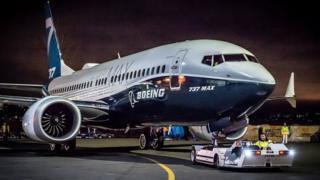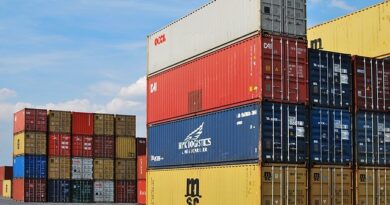Europe to start Boeing 737 Max test flights
 Image copyright Boeing
Image copyright Boeing EU aviation regulators have scheduled flight tests for Boeing’s troubled 737 Max plane.
The European Union Aviation Safety Agency (EASA) said the tests would take place in Vancouver, Canada in the week beginning 7 September.
Boeing’s best-selling aircraft was grounded last year after two crashes killed all 346 people on the flights.
The announcement comes two months after US regulators began similar test flights for the jet.
However, EASA has maintained that clearance by the US Federal Aviation Administration will not automatically mean a clearance to fly in Europe.
- ‘Nothing will ever be the same’ after Boeing crash
- Victims’ families slam report into 737 Max crashes
The agency said it had been «working steadily, in close co-operation with the FAA and Boeing, to return the Boeing 737 Max aircraft to service as soon as possible, but only once it is convinced it is safe».
It said the process of scheduling the test flights had been hindered by Covid-19 travel restrictions between Europe and the US
It added: «While Boeing still has some final actions to close off, EASA judges the overall maturity of the re-design process is now sufficient to proceed to flight tests. These are a prerequisite for the European agency to approve the aircraft’s new design.»
EASA said simulator tests would take place from 1 September at London’s Gatwick airport.
Changes to make
Meanwhile, the FAA has put forward a wide-ranging list of changes it wants to be made before the planes can fly again commercially.
These include updating flight control software, revising crew procedures and rerouting internal wiring.
Boeing hopes to get the 737 Max back in the air early next year.
Aviation regulators grounded the 737 Max following two crashes – a Lion Air flight and an Ethiopian Airlines flight – within five months of each other.
The crashes killed all 346 passengers and crew on the flights.
The ruling triggered a financial crisis at the 103-year-old company, sparked lawsuits from victims’ families and raised questions about how Boeing and the FAA conducted their safety approval process.
Investigators blamed faults in the flight control system, which Boeing has been overhauling for months in order to meet new safety demands.



